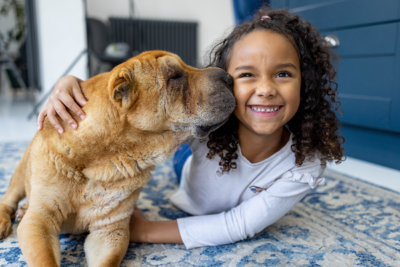
Senior pets end up in shelters for a variety of reasons. They are often mistakenly thought of as ‘problem pets’, but they lose their homes for a variety of reasons: they were the pets of elderly people who died or moved into assisted living; economic hardship forces the family to surrender their pet; children were born, and the pet did not tolerate the new baby, or the parents did not want the additional responsibility; the pet was rescued from poor living conditions.
Sure, puppies and kittens are cute, but adopting puppies and kittens can be a lot more work: ‘accident’ clean-ups, crazy midnight play sessions, and training to name a few.
There are many advantages to adopting an older cat or dog. Here are five great reasons to consider a senior pet:
- They’re trained. Older dogs are typically house-trained and understand important commands like ‘sit’ and ‘stay’. You will save yourself a lot of time and money usually needed to train a puppy, and you will be able to jump right into enjoying long walks and playing fetch. If you choose to add additional tricks to your pet’s repertoire, you can teach an old cat or dog new tricks! Older pets typically learn tricks more easily because they have longer attention spans than younger ones.
- What you see is what you get. Because the pet is fully grown, there are no mysteries about what size the pet will be, the pet’s personality, how thick the coat will be, or the level of care he will need. You can also find out if the pet lived with children and other pets and how compatible they were. Senior pets often come to you with medical history – if he has a medical condition, you will know what that condition is and how it’s treated right from day one. Most shelters will continue or begin treatment before the pet is adopted.
- They’re less destructive. Puppies can be destructive. Because they have all their adult teeth (or may be missing a couple), senior pets tend not to chew on table legs, shoes, couches, and everything else within their reach. Senior pets are often thought of as ‘problem pets’, but as outlined above, they usually lose their home for reasons other than their behavior or personality.
- They’re calmer. Older pets have already gone through their ‘need-to-burn-off-energy-like-there’s-no-tomorrow’ phase of life. They are usually much more relaxed and have established their personality and character. By asking shelter employees about the pet’s character, you will know if the pet will fit into your household and lifestyle. These lower-energy pets are great for senior citizens looking for a companion pet, young families with children or families who have had the “puppy or kitten experience” and are looking for an older pet that comes without training needs.
- You are a hero. For one reason or another, many senior pets in shelters have been separated from their lifelong companions and way of life, which can be really hard for them. Adopting a senior pet provides a loving home for the pet to live out his or her golden years.
If you are thinking of adopting a pet, consider adopting a senior pet looking for a loving family!